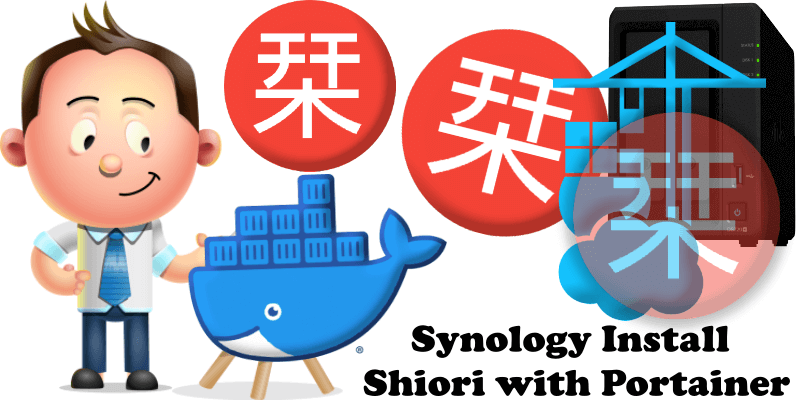
My previous guide for Shiori involved the use of Task Scheduler. Today I’m offering a recommended and excellent alternative for installing the latest Shiori version via Portainer. Shiori is a simple bookmarks manager written in the Go language. You can use it as a command line application or as a web application. This application is distributed as a single binary, which means it can be installed and used easily. The alternative to Shiori is Wallabag In this step by step guide I will show you how to install Shiori on your Synology NAS using Docker & Portainer.
This guide works perfectly with the latest Shiori v1.8.0 release.
STEP 1
Please Support My work by Making a Donation.
STEP 2
Install Portainer using my step by step guide. If you already have Portainer installed on your Synology NAS, skip this STEP. Attention: Make sure you have installed the latest Portainer version.
STEP 3
Go to File Station and open the docker folder. Inside the docker folder, create one new folder and name it shiori. Follow the instructions in the image below.
Note: Be careful to enter only lowercase, not uppercase letters.
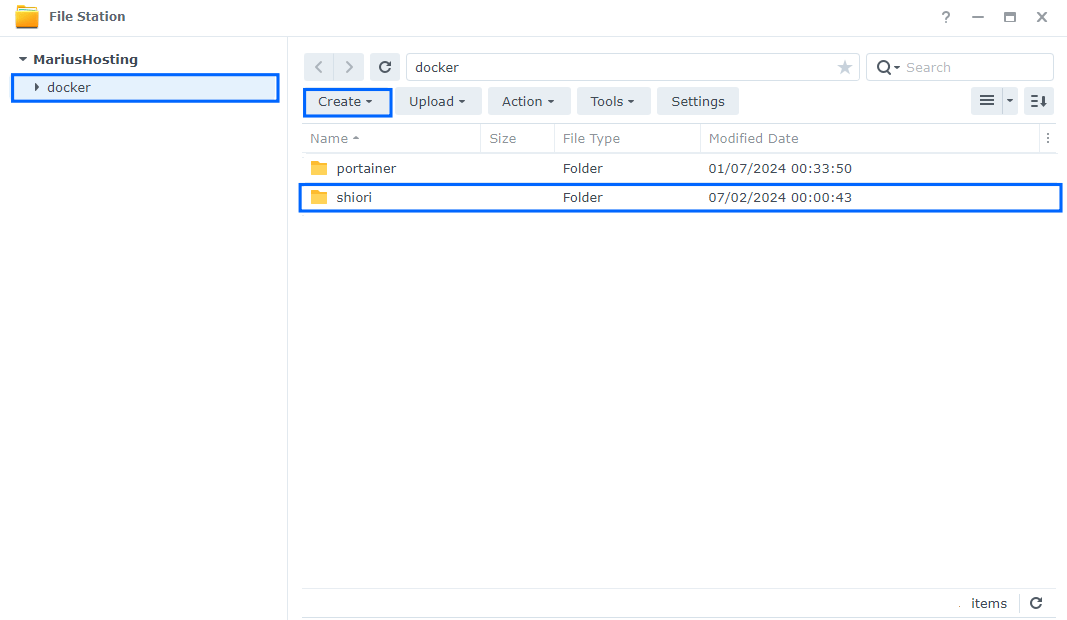
STEP 4
Log into Portainer using your username and password. On the left sidebar in Portainer, click on Home then Live connect. Follow the instructions in the image below.

On the left sidebar in Portainer, click on Stacks then + Add stack. Follow the instructions in the image below.

STEP 5
In the Name field type in shiori. Follow the instructions in the image below.
services:
shiori:
image: peppershade/shiori:latest
container_name: Shiori
healthcheck:
test: ["CMD-SHELL", "nc -z 127.0.0.1 8080 || exit 1"]
interval: 10s
timeout: 5s
retries: 3
start_period: 90s
user: 1026:100
environment:
SHIORI_HTTP_SECRET_KEY: dOxZYTTZgXKMHkqLBIQVImayQXAVWdzGBPuFJKggzcgvgPJPXpWzqzKaUOIOGGIr
volumes:
- /volume1/docker/shiori:/shiori-data:rw
ports:
- 18080:8080
restart: on-failure:5
Note: Before you paste the code above in the Web editor area below, change the value numbers for user with your own UID and GID values. (Follow my step by step guide on how to do this.) 1026 is my personal UID value and 100 is my personal GID value. You have to type in your own values.
Note: Before you paste the code above in the Web editor area below, change the value for SHIORI_HTTP_SECRET_KEY. (Generate your own Random 64 length SHIORI_HTTP_SECRET_KEY.)
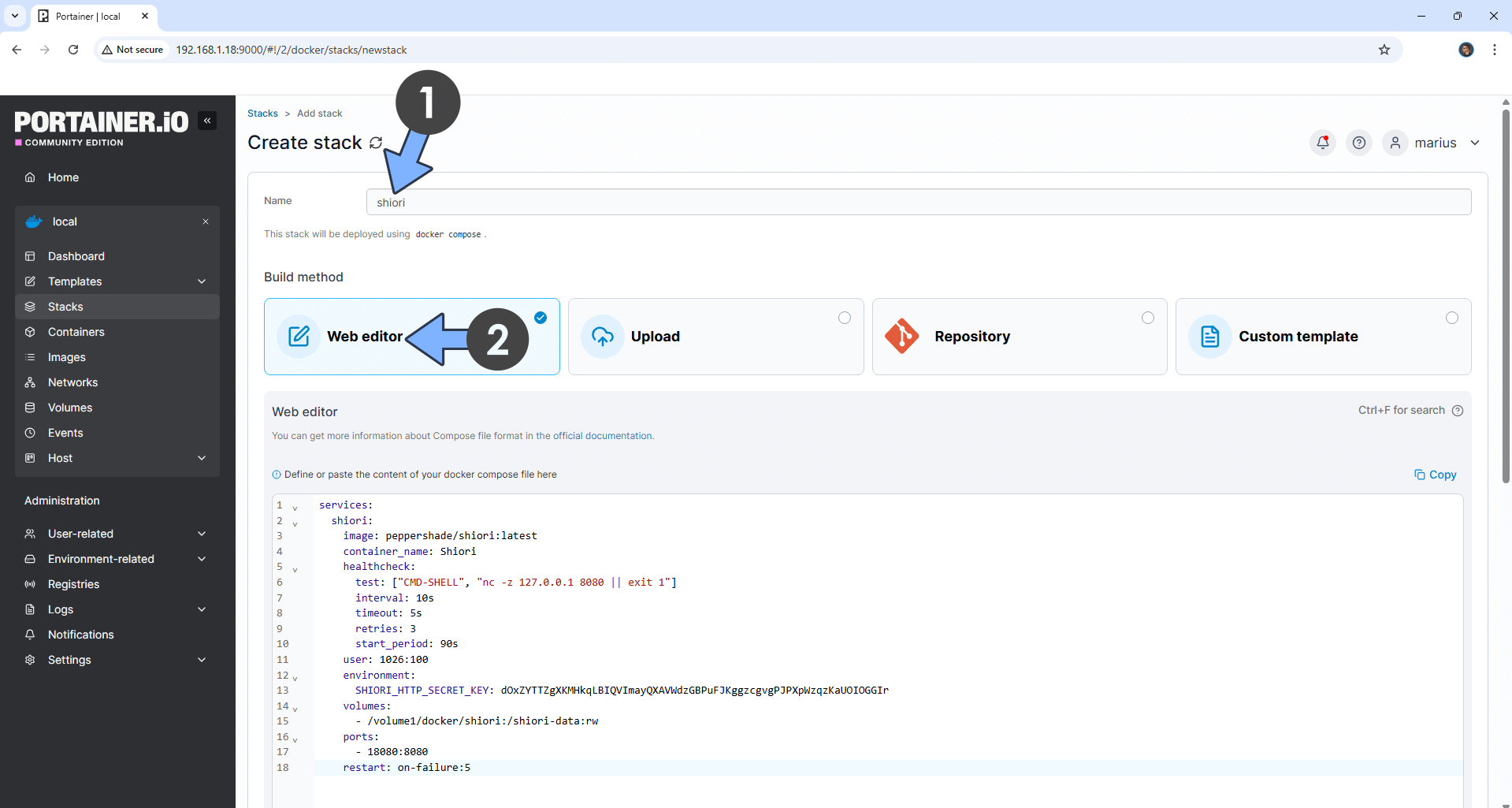
STEP 6
Scroll down on the page until you see a button named Deploy the stack. Click on it. Follow the instructions in the image below. The installation process can take up to a few minutes. It will depend on your Internet speed connection.
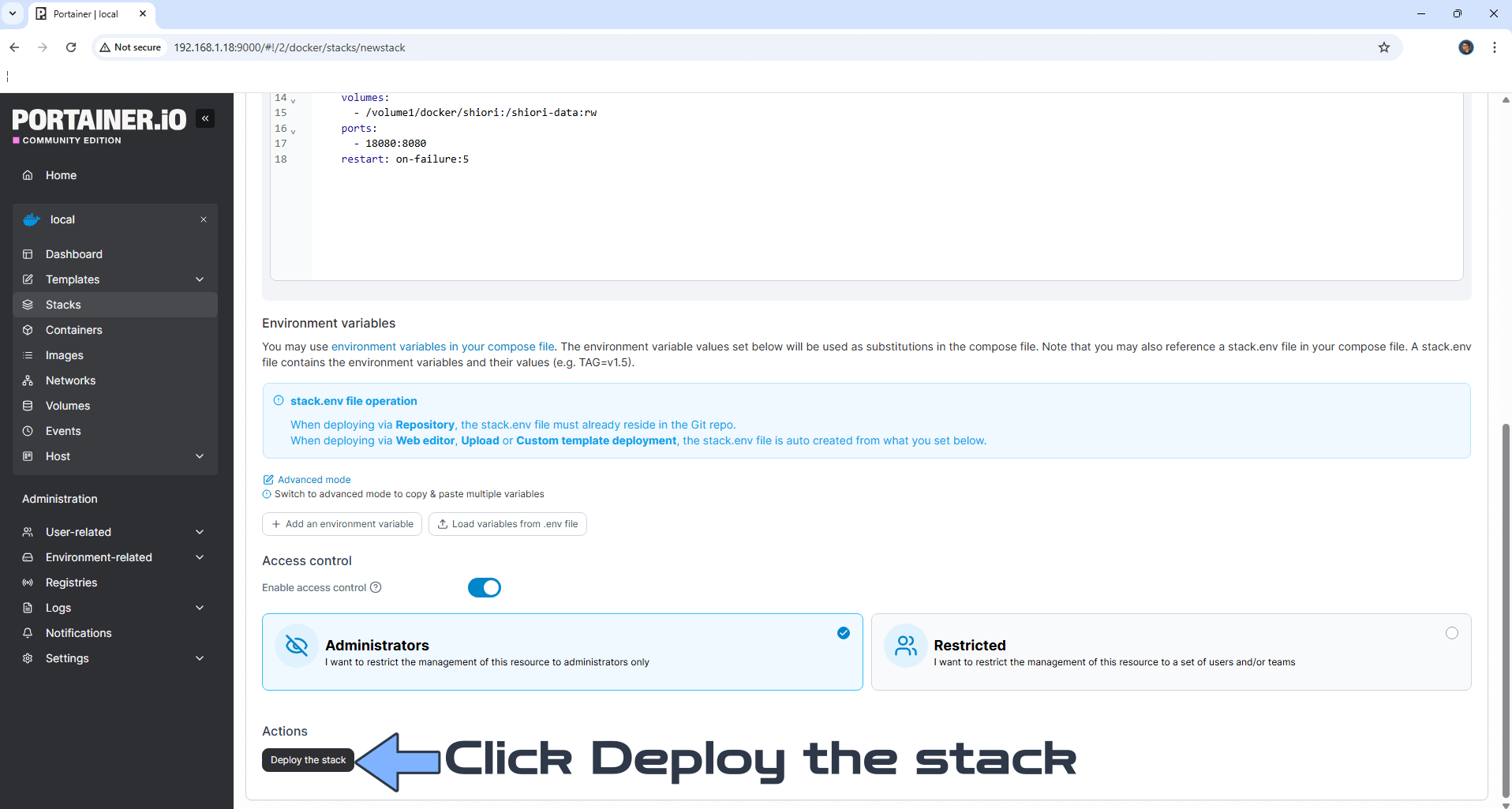
STEP 7
If everything goes right, you will see the following message at the top right of your screen: “Success Stack successfully deployed“.

STEP 8
🟢Please Support My work by Making a Donation. Almost 99,9% of the people that install something using my guides forget to support my work, or just ignore STEP 1. I’ve been very honest about this aspect of my work since the beginning: I don’t run any ADS, I don’t require subscriptions, paid or otherwise, I don’t collect IPs, emails, and I don’t have any referral links from Amazon or other merchants. I also don’t have any POP-UPs or COOKIES. I have repeatedly been told over the years how much I have contributed to the community. It’s something I love doing and have been honest about my passion since the beginning. But I also Need The Community to Support me Back to be able to continue doing this work.
STEP 9
The installation process can take up to a few seconds/minutes. It will depend on your Internet speed connection. Now open your browser and type in http://Synology-ip-address:18080/login Type in the default username and password, then click LOG IN. Follow the instructions in the image below.
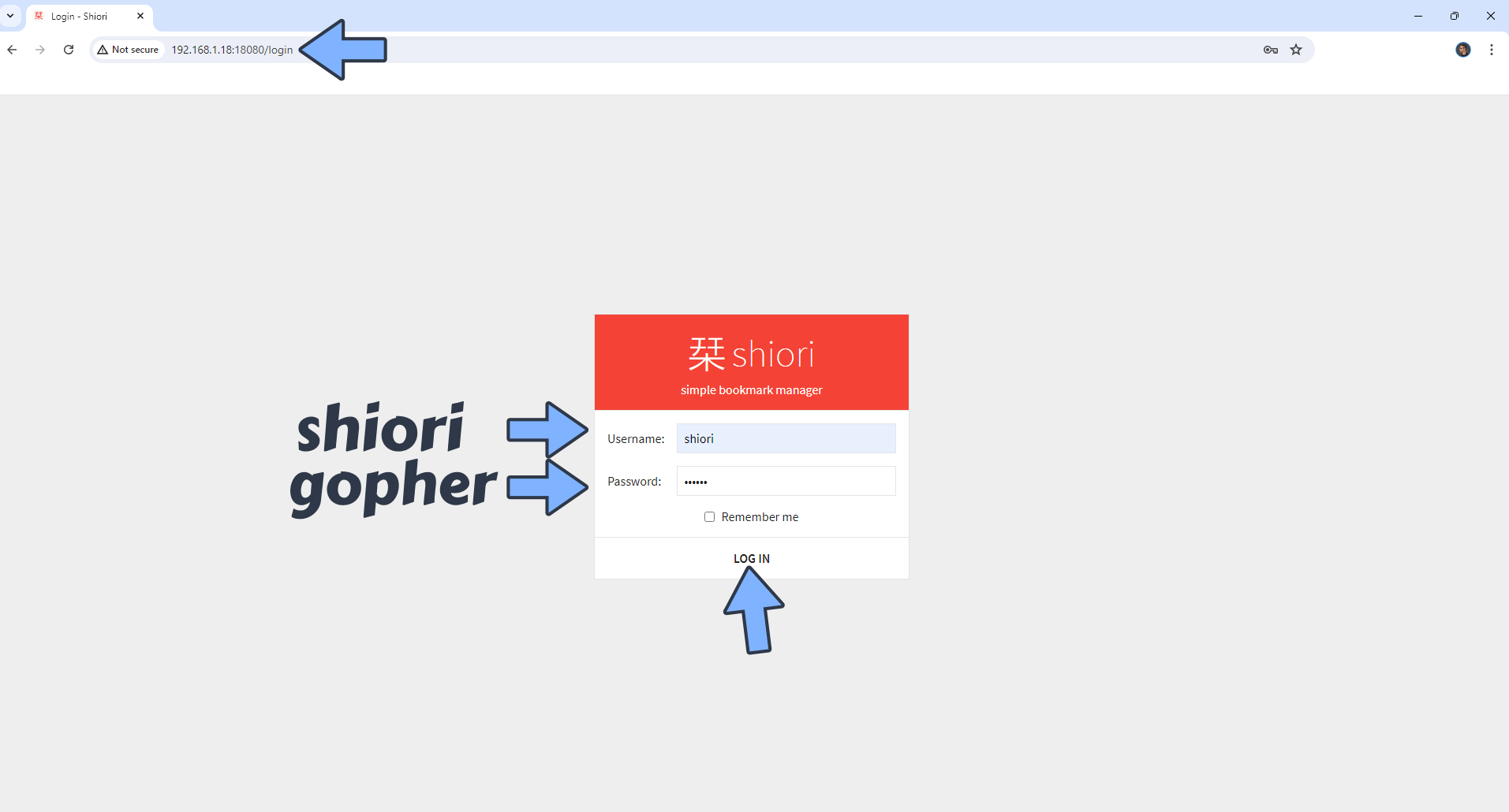
STEP 10
Once you log in, click the + icon at the top right of the page then start adding new bookmarks. Type in the website URL, give it a description, choose a tag or keyword, create an archive, create an eBook, then click OK. Follow the instructions in the image below.
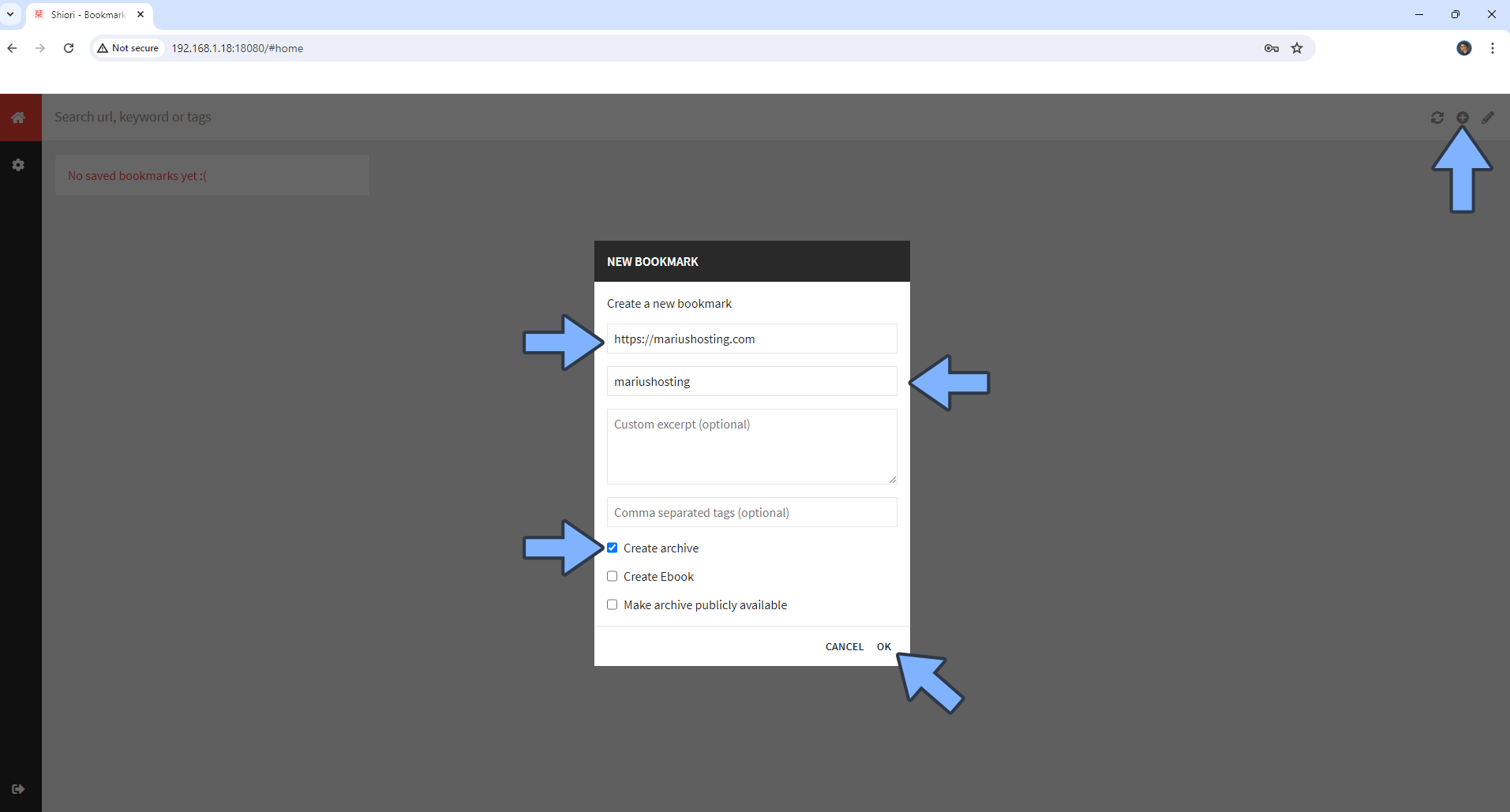
STEP 11
Once you have added your favorite bookmarks, you will see all of them in the default page.
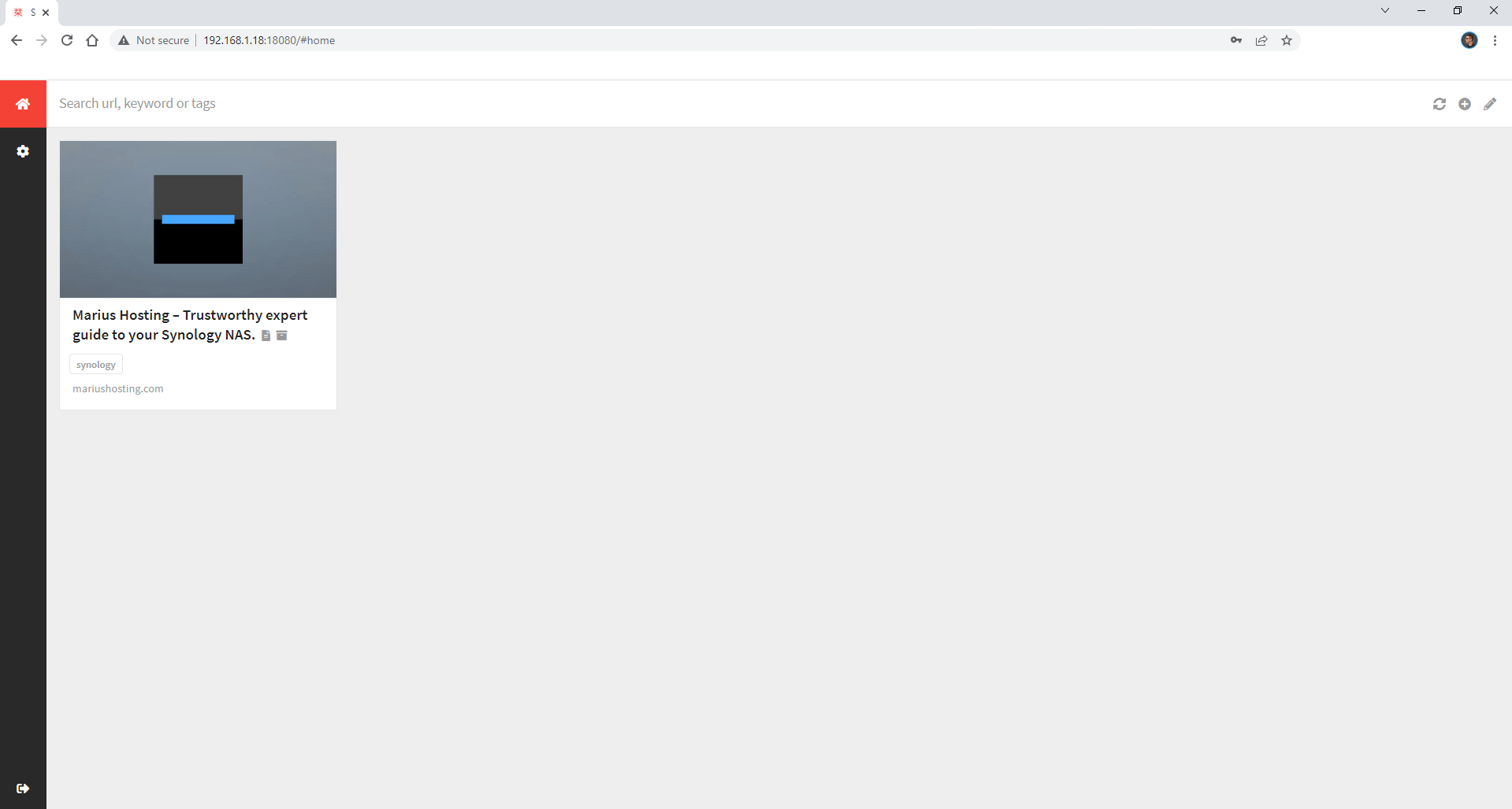
STEP 12
At the top left of the page click the gear icon to access the settings. You can change your theme to Dark Mode. Follow the instructions in the image below.
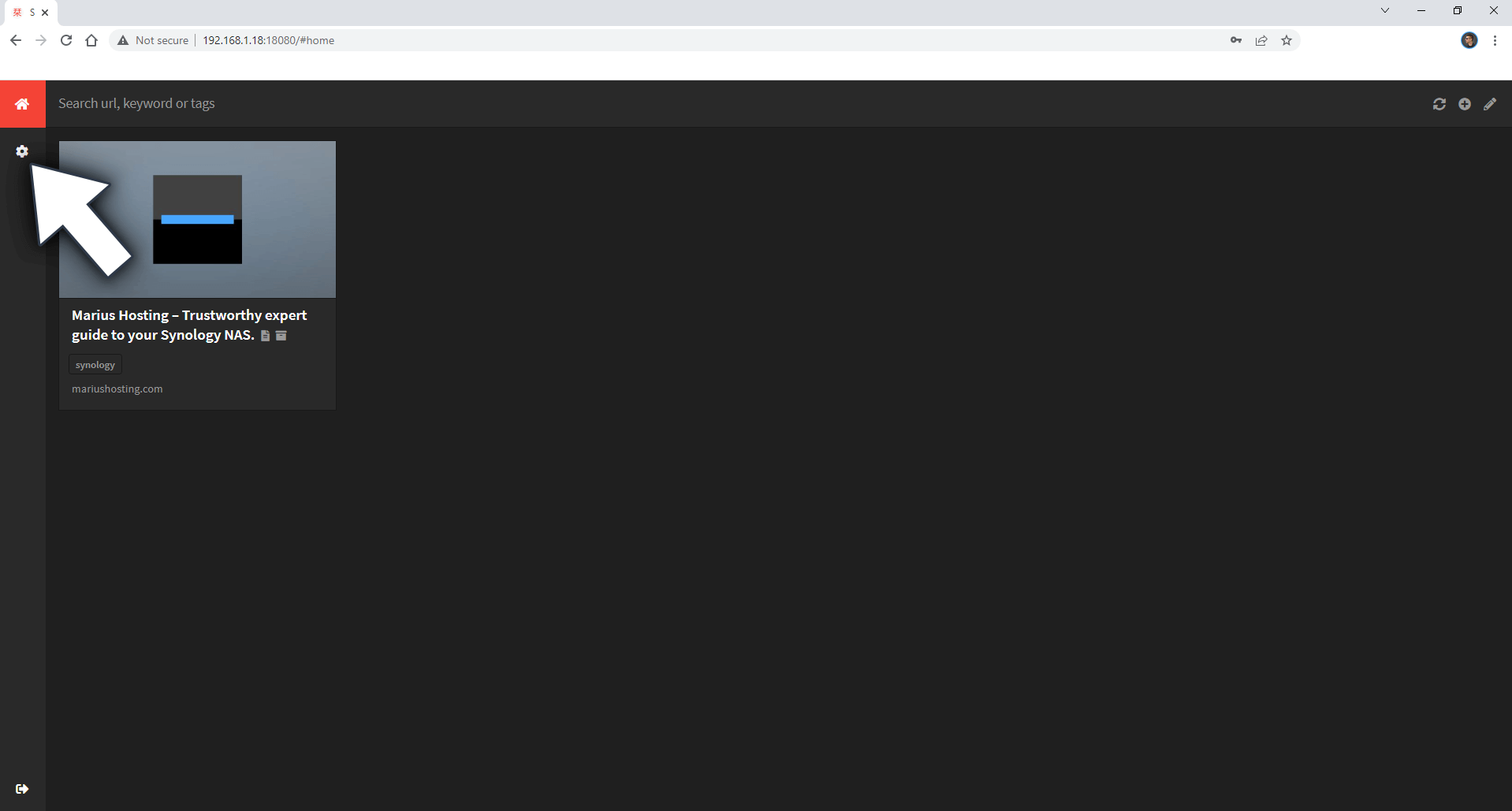
STEP 13
Click on your bookmark. Follow the instructions in the image below.
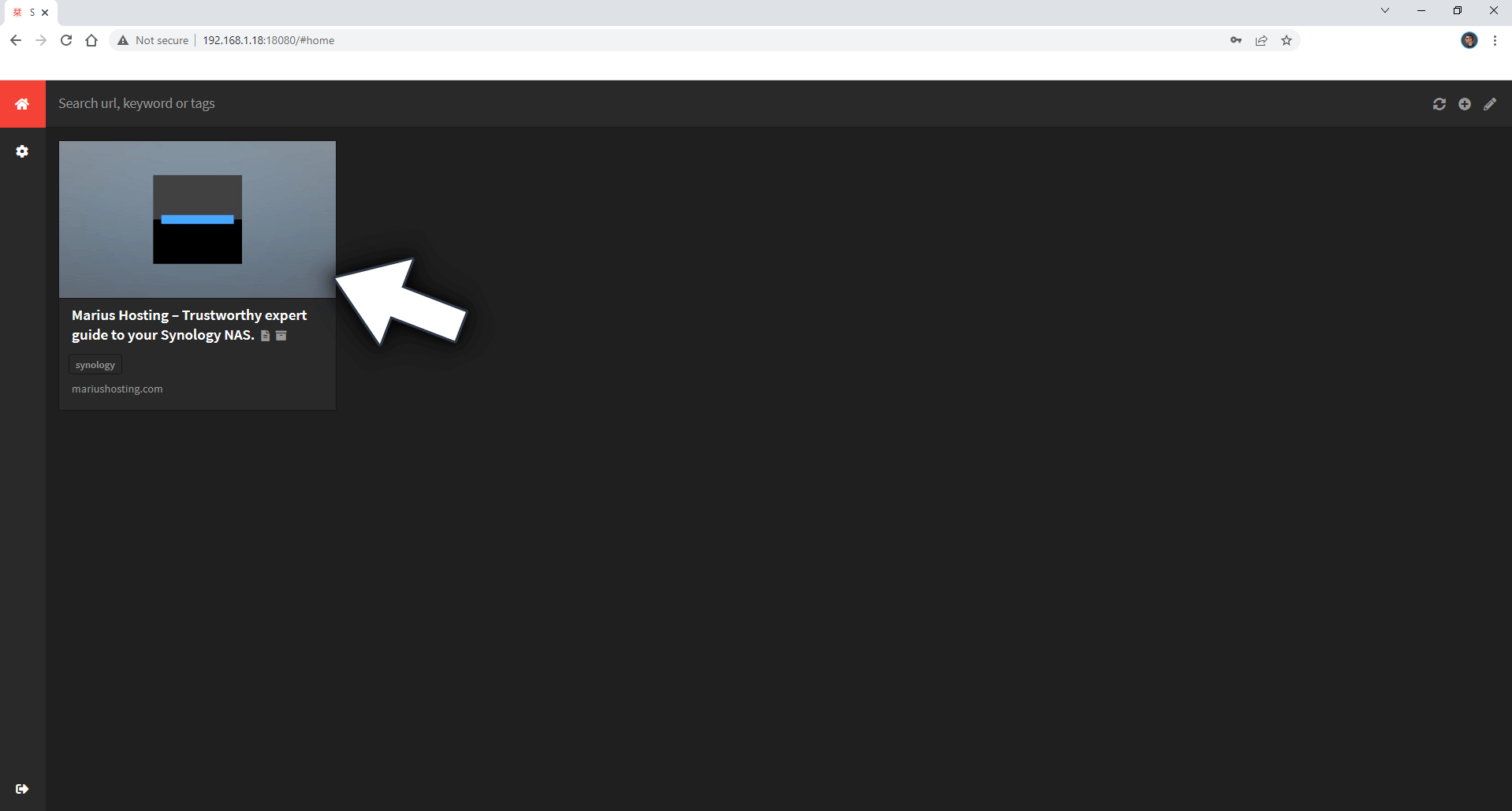
STEP 14
Your Shiori archive content at a glance.
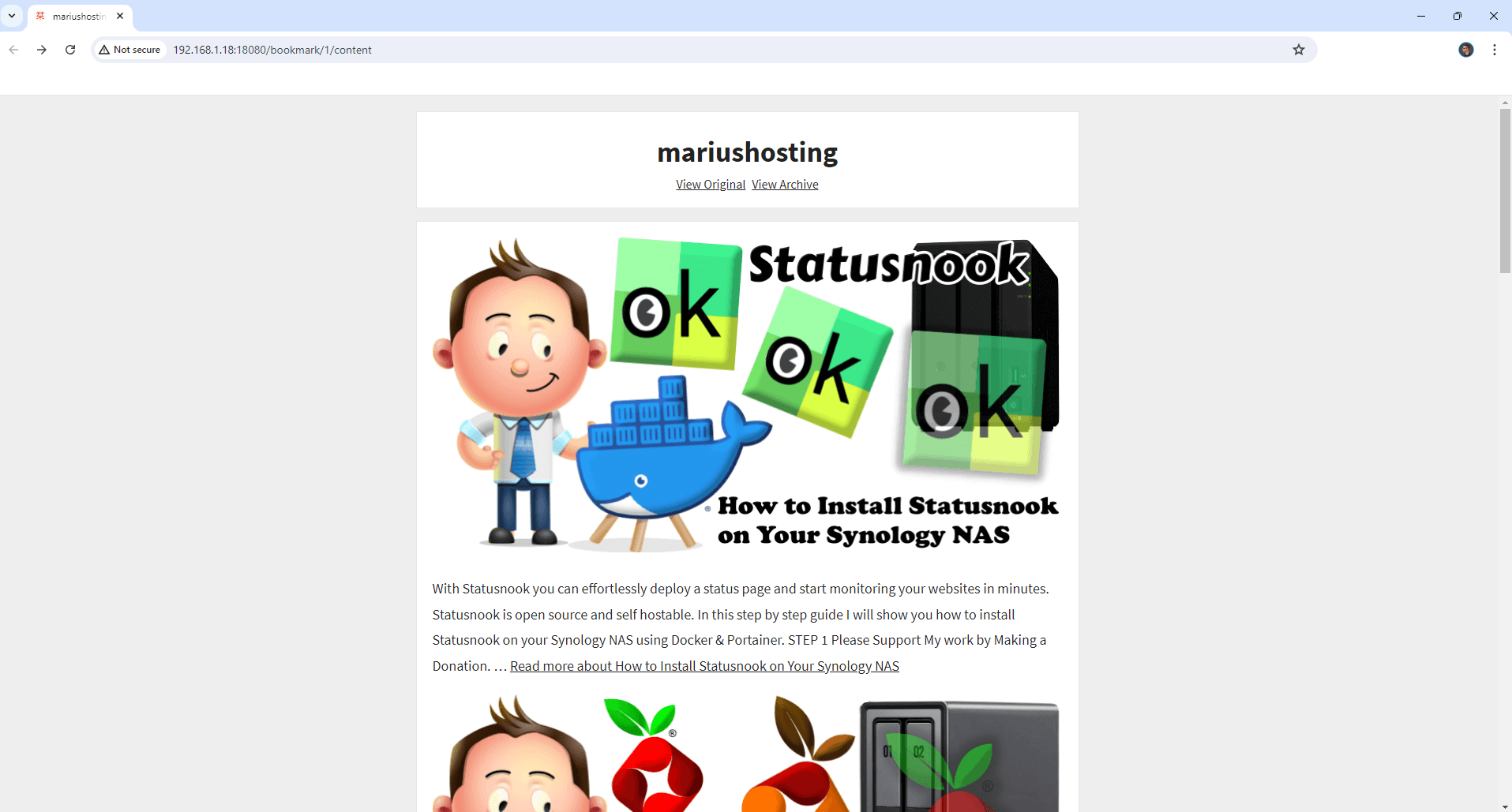
Enjoy Shiori!
If you encounter issues by using this container, make sure to check out the Common Docker issues article.
Note: If you want to run the Shiori container over HTTPS, check How to Run Docker Containers Over HTTPS. In order to make Shiori work via HTTPS, it’s mandatory to activate WebSocket.
Note: Can I run Docker on my Synology NAS? See the supported models.
Note: How to Back Up Docker Containers on your Synology NAS.
Note: Find out how to update the Shiori container with the latest image.
Note: How to Free Disk Space on Your NAS if You Run Docker.
Note: How to Schedule Start & Stop For Docker Containers.
Note: How to Activate Email Notifications.
Note: How to Add Access Control Profile on Your NAS.
Note: How to Change Docker Containers Restart Policy.
Note: How to Use Docker Containers With VPN.
Note: Convert Docker Run Into Docker Compose.
Note: How to Clean Docker.
Note: How to Clean Docker Automatically.
Note: Best Practices When Using Docker and DDNS.
Note: Some Docker Containers Need WebSocket.
Note: Find out the Best NAS Models For Docker.
Note: Activate Gmail SMTP For Docker Containers.
This post was updated on Friday / February 6th, 2026 at 11:50 PM
